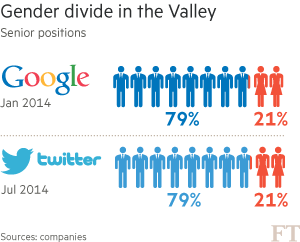Air strikes in Yemen, the science of our love for a bargain, and the cocoa wars


Get involved with our crowdsourced digital platform to deliver impact at scale
Stay up to date:
Middle East and North Africa
The daily briefing “FirstFT” from the Financial Times.
Saudi Arabia and its Gulf Arab allies launched air strikes against Houthi fighters in Yemen. The 10-country coalition started its campaign in an effort to loosen the Houthis’ grip on Aden, the southern port city where President Abd Rabbuh Hadi had taken refuge. (FT)
The move sets up a confrontation between Sunni-majority Arab countries and Shia Iran, which they accuse of interfering in the Arab world through its support of groups such as the Houthi, followers of the Zaydi Shia sect. Brent crude prices rose by more than a dollar in early Asian trading but any concerns about supply disruptions seem muted. (Reuters)
In the news
Schlumberger violated US sanctions The world’s largest oil services group admitted to facilitating trade with Iran and Sudan and agreed to pay a $233m penalty. The subsidiary that committed the violations will be put on probation for three years and its parent company has to hire an independent consultant to review its compliance procedures. (FT)
US-led coalition launches air strikes against Isis The international coalition launched its first air strikes to support a stalled three-week offensive by Iraqi armed forces and allied forces to wrest control of the Sunni city of Tikrit from jihadi militants. Iraqi security forces have been arrayed around Tikrit since early March trying to push Isis out of Saddam Hussein’s home town. (FT)
Germanwings cockpit mystery Evidence from the cockpit voice recorder of the jet that crashed in the French alps indicates that one of the pilots left the cockpit before the plane’s descent and was unable to get back in, an investigator told the New York Times – “you can hear he is trying to smash the door down”.
Spain welcomes back descendants of expelled Jews Madrid approved a new law allowing the descendants of Jewish families expelled in 1492 to apply for citizenship. Sephardic Jews were expelled by King Ferdinand and Queen Isabella in their drive to establish a purely Roman Catholic Kingdom and the law marks the final step in a decades-long effort to establish better ties with the Jewish community and Israel. (FT)
Facebook Messenger open to developers The social network is following in the footsteps of WeChat by opening its messenger service up to integration with other apps . WeChat includes a range of functions from calling a cab to making payments and Facebook hopes that mimicking this model could make Messenger its next big revenue generator. (FT)
It’s a big day for
The Kleiner Perkins Caufield & Byers trial Closing arguments are expected to conclude today in the case that has highlighted the simmering gender problems in Silicon Valley. Ellen Pao, a former junior partner at the venture capital firm, says the firm paid her less than male colleagues, denied her opportunities and failed to deal properly with allegations of sexual impropriety. (FT)
Adidas The German sportswear group launches its new strategy after a difficult 18 months in which it issued a series of profit warnings. Investors will be looking for signs of progress in thesearch for a successor to Herbert Hainer. The longstanding chief executive has been under fire from investors unhappy with the group’s recent performance. (FT)
Food for thought
Oligarch brought to heel At the height of the Ukrainian crisis last year Igor Kolomoisky helped stop the spread of unrest in his role as regional governor. Now Kiev has acted against the “corporate raider” over fears he has become too powerful. (FT)
The science of fast fashion Researchers have found that we are neurologically wired to enjoy a good bargain – and don’t retailers know it. Clothing has become cheaper and shopping is now an entertainment in itself, with millennials particular fans of just looking at products. (The Atlantic)
The search for the Pez de resistance A Michigan farmer’s collective disorder took him across eastern Europe in his efforts to smuggle rare Pez toys back into the US. He eventually became a celebrity and made $4m from the sweet-dispensers – until Pez decided to cut off the market he had created. (Playboy)
A currency war, Borneo style The Indonesian central bank chief for west Kalimantan province takes a road trip to the highland jungles of one of the world’s most remote borders. He goes to the divide between the Malaysian and Indonesian parts of Borneo island carrying $385,000 in fresh new currency. The residents have become accustomed to using the Malaysian ringgit as the nearest Malaysian town is only fifteen minutes away but Indonesia wants to keep the residents using rupiah. It doesn’t want to risk losing territory to Malaysia. (Bloomberg)
Video of the day
Cocoa fights Rival exchanges CME Group and Intercontinental Exchange are both launchingeuro-denominated cocoa futures contracts. Edward George, head of research at Ecobank, explains why they are going head-to-head in a battle for cocoa contracts and why it will be chocolate makers such as Nestle and Mondelez that decide the winner. (FT)
This article is published in collaboration with The Financial Times. Publication does not imply endorsement of views by the World Economic Forum.
To keep up with the Agenda subscribe to our weekly newsletter.
Author: FirstFT is the Financial Times’ editors curated free daily email of the top global stories from the FT and the best of the rest of the web.
Image: Soldiers guard the Yemeni Parliament building during a board meeting on government’s plan of national reconciliation in Sanaa. REUTERS/Mohamed al-Sayaghi.
Don't miss any update on this topic
Create a free account and access your personalized content collection with our latest publications and analyses.
License and Republishing
World Economic Forum articles may be republished in accordance with the Creative Commons Attribution-NonCommercial-NoDerivatives 4.0 International Public License, and in accordance with our Terms of Use.
The views expressed in this article are those of the author alone and not the World Economic Forum.
The Agenda Weekly
A weekly update of the most important issues driving the global agenda
You can unsubscribe at any time using the link in our emails. For more details, review our privacy policy.
More on Emerging TechnologiesSee all
Kate Whiting and Linda Lacina
September 16, 2024
Madeleine North
September 16, 2024
Minoo Rathnasabapathy and Nikolai Khlystov
September 16, 2024
Robin Pomeroy and Sophia Akram
September 16, 2024
Sebastian Buckup
September 12, 2024
JoAnn Stonier, Lauren Woodman and Karla Yee Amezaga
September 11, 2024







